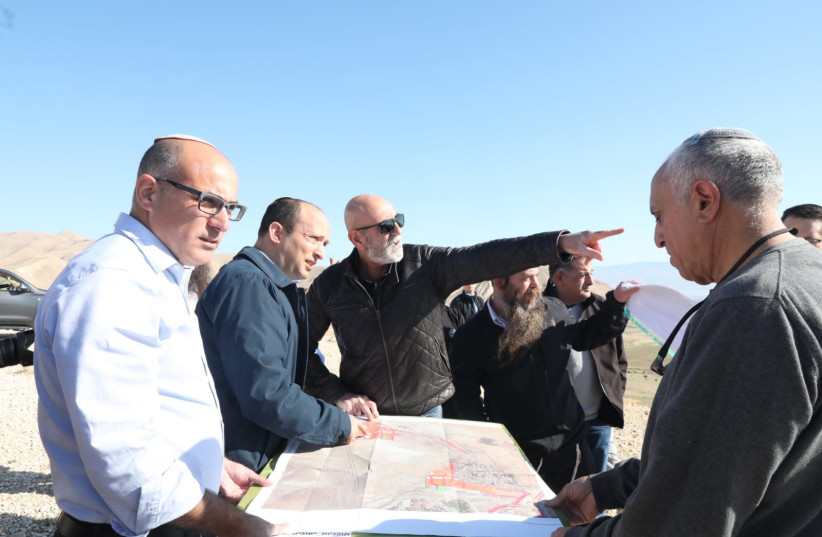David Elhayani, the controversial and outspoken head of the Yesha Council, announced his resignation on Sunday, just as the country heads into its fifth election cycle in less than four years.
Elhayani, 62, will retain his role as head of the Jordan Valley Regional Council, which he has led since 2009.
“In light of the political developments in the State of Israel and the start of another election campaign, I would like to announce that I’m ending my term as Chairman of the Yesha Council,” Elhayani said.
“At the next general meeting, I will discuss the procedure for electing the next chairman.”
The New Hope Party member published his resignation notice just hours before the party announced its merger with Blue and White.

His spokeswoman said that the timing was coincidental and that Elhayani is not planning to run for the Knesset.
Who is Elhayanii?
The tall, secular politician was elected Yesha chairman in 2019, at a time when it was hoped that his region and the adjacent northern Dead Sea would be annexed into Israel. That sovereignty plan was then expanded to include all the settlements.
Elhayani had been a veteran Likud politician and was initially one of the pillars of opposition leader Benjamin Netanyahu’s re-election campaign in 2019 and 2020.
He was among the group of five settler leaders who traveled to Washington for the unveiling of former US President Donald Trump’s peace plan in January 2020. The Trump plan allowed for Israel to eventually annex the settlements but it also spoke of a future Palestinian state.
Elhayani broke with Trump after the plan’s publication, making waves when he said that the US president was not a friend of Israel and warning that his plan sanctioned the creation of a Palestinian state, which he opposed.
The Trump plan split the council, with half of the leadership supporting it and the other half opposing it, including Elhayani.
The outgoing Yesha Council head called for the unilateral application of sovereignty to West Bank settlements and the Jordan Valley as a necessary step independent of the Trump plan.
Elhayani also left the Likud for New Hope after Netanyahu agreed to suspend the sovereignty plan in favor of the Abraham Accords.
Efrat Council head Oded Revivi, who had a contentious relationship with Elhayani and who supported the Trump plan, said that elections for a new Yesha leader were an opportunity to reevaluate the settlement movement’s goals.
Elhayani’s resignation “is an opportunity for the settlement [movement] to stop and think about what it wants to be in ten and twenty years,” Revivi said.
"Is an opportunity for the settlement [movement] to stop and think about what it wants to be in ten and twenty years"
Oded Revivi
“Since the days of Oslo and the Disengagement [Gaza pullout] crisis that were swords around our necks, we have missed various opportunities to further strengthen our home and hence Israel,” he said.
Revivi said he hoped that a leader would emerge with a feasible vision of how Judea and Samaria should look in 2040, rather than one who focused on unattainable goals.
“If we want to claim that we are pioneers before the camp, we have to act in a manner that allows the camp to see us as pioneers.”
